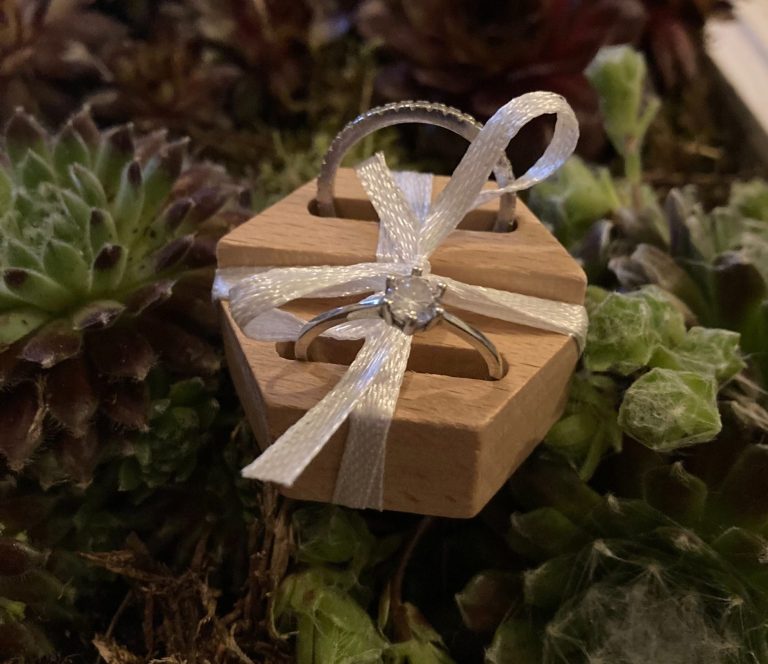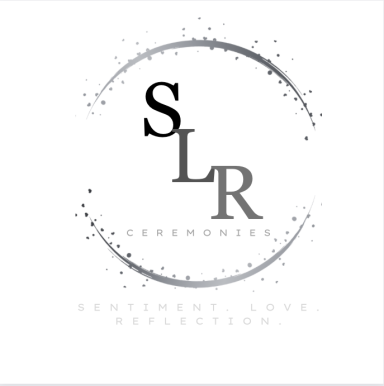
Tradition for traditions sake?
In an ever-changing world, we posed an intriguing question to a demographic of women aged between 18 and 73: do wedding traditions still hold significance in 2025? The responses revealed a fascinating spectrum of opinions. Many younger women expressed enthusiasm for modern twists on classic rituals, while holding some traditions almost sacred. Interestingly, our middle-agers and those entering their golden years shared nostalgic recollections of traditional ceremonies but seemed more likely to embrace more change to traditions, eager to start their own even. Showing a more progressive perspective, indicating a willingness to spend the night before the wedding with their intended, emphasizing a focus on companionship over tradition. When it comes to destination weddings, the consensus was mixed; some viewed them as romantic getaways that offer unique experiences, while others lamented the loss of family involvement. This dialogue highlights the dynamic evolution of wedding customs as society continues to reshape the meaning of love and commitment. Read on for more in depth information and the voting percentages.

Will you get married, re-married, renew your vows or just not bother?
Marriage is a profound commitment that brings two individuals together, often celebrated with great joy and festivity. However, life can lead to changes that necessitate re-marriage or vow renewal ceremonies. These occasions serve as beautiful reminders of love and dedication, allowing couples to reaffirm their promises to one another. While some may question the need for a grand celebration or feel that a simple commitment is sufficient, the act of celebrating love—whether through a fresh start or a heartfelt renewal—can be a significant and cherished experience for partners and their loved ones alike. Ultimately, what matters most is the sincerity of the vows exchanged and the love that binds the couple together.

Will you choose traditional white or go with something completely different?
Ever since Queen Victoria, the original celebrity bride, donned her pristine white gown on her wedding day, the tradition of wearing white has become a hallmark of bridal fashion. However, as we stick to this cherished tradition, many modern couples are also embracing the beauty of moving with the times. While classic white remains a timeless choice, brides are now exploring an array of shades such as cream and ivory, which offer a softer alternative. Furthermore, neutral tones have gained popularity for their elegance and versatility. Some adventurous brides even opt for pops of colour, incorporating shades of blue, yellow, pink, green, orange, purple, and even bold reds into their ensembles. For those seeking a striking statement, black gowns are becoming increasingly accepted, showcasing that wedding attire can reflect personal style while honouring tradition. Ultimately, the spectrum of colours allows every bride to create a unique narrative, balancing the reverence for historical customs with the desire for modern expression.

Will you choose one dress for the entire day or several to change into throughout the day?
When planning your wedding, one of the key considerations is the selection of outfits. The number of outfits you choose can reflect your personal style and the overall theme of your celebration. Before making your selections, it is important to consider the purpose behind each outfit. Are you looking to make a memorable impression during your ceremony, or do you prefer to feel comfortable and confident throughout the festivities? Timing is another crucial factor. The ideal moments for changing outfits might be immediately after your vows or just before the reception party begins. Creating a smooth transition between different parts of the day is essential to ensure you feel relaxed and at ease during your wedding. Ultimately, the decisions surrounding your outfits should enhance your special day, allowing you and your partner to express your unique personalities as a couple. Embrace the process and let your style aspirations guide you in creating a captivating experience.

Will you choose a destination or home wedding?
In recent years, couples have begun shifting their focus away from traditional wedding ceremonies, opting instead for a more relaxed and enjoyable approach to their celebrations, often referred to as a 'wed-cation.' This trend allows couples to combine their wedding festivities with a holiday experience, inviting guests to join them in stunning locations for a more intimate and memorable occasion. By embracing this holiday-style celebration, couples can create lasting memories while enjoying the beauty of picturesque settings, ultimately making their special day feel less like an obligation and more like a joyful adventure.

Will you choose to stay apart the night before your wedding or throw that tradition away?
In the lead-up to the big day, a contemporary twist on traditional wedding customs is gaining popularity, particularly the decision to spend the night before the wedding together but the morning with their family and friends. This shift not only fosters an eagerness for the first moment of reunion at the altar but also alleviates some of the pre-wedding nerves, ultimately creating a more personalised and memorable experience as they embark on their journey together. Some choose to ignore the tradition entirely. However, the age-old tradition of couples refraining from seeing their betrothed from the night before until they meet at the altar, remains the favourite. Still choosing to spend the night separately, enjoying a final evening of reflection and excitement with their respective families and friends, allowing them the space to contemplate the monumental step they are about to take.

Will your choice be to stick with the tradition of being 'given away' or to do things entirely differently?
The tradition of being given away during a wedding ceremony holds significant cultural importance, reflecting deep-rooted values and evolving practices. Historically, this custom often involved the father of the bride leading her to the altar, symbolising a transfer of responsibility and protection. However, modern interpretations have embraced a variety of innovative approaches that respect traditional sentiments while allowing for personal expression. In contemporary weddings, couples may choose to be 'given away' by a cherished family member or close friend, highlighting the importance of community and support rather than rigid adherence to old norms. Additionally, some couples opt for a joint entrance, signifying equality and partnership as they embark on their new journey together. This blending of old-fashioned and new traditions illustrates the dynamic nature of wedding customs, as they continue to adapt to the evolving definitions of love and commitment in society.

Is having a wedding party (groomsgirls/bestmen or an i do crew/people of honour group) on your list? Will you choose for them to wear the same colour, different colours or wear whatever they feel most comfortable in?
As wedding parties continue to evolve in response to increasing diversity and inclusivity, traditional roles are transforming to mirror the dynamics of modern relationships and gender identities. Designations such as 'bridesmen' and 'groomsgirls' have emerged as prominent alternatives, enabling individuals of all genders to assume significant roles in the celebrations of their friends. This development not only recognises the diverse structures of wedding parties but also encapsulates the essence of love and unity that weddings embody. As an increasing number of couples pursue personalised and progressive ceremonies, these new titles underscore the paramount importance of inclusivity within contemporary British weddings.

Will you choose a church, registry office, approved location (like a hotel) or somewhere different like the top of a mountain?
Choosing the perfect setting for your wedding is a deeply personal decision, whether you envision exchanging vows in a sacred church, a charming registry office, or an approved venue that reflects your style and love story. Each option carries its own charm and significance; a church offers a traditional atmosphere filled with spiritual meaning, while a registry office provides a more straightforward, elegant experience. For those seeking something uniquely memorable, consider tying the knot on a picturesque mountain top, surrounded by breathtaking views and nature's tranquillity. Regardless of the location, the essence of your special day lies in the love you share and the memories you create.

Will you choose to stick with traditional vows, write your own vows or ask for help with these?
When it comes to wedding vows, many couples find themselves torn between the allure of traditional promises and the desire to express their unique love story through personalised vows. Traditional vows are time-honoured and evoke a sense of solemnity and commitment that has resonated through generations. However, writing your own vows allows you to infuse your wedding ceremony with a distinct voice that reflects your relationship. If you find the prospect of crafting your own vows a bit daunting, don't hesitate to seek help. Whether from friends, family, or even a wedding celebrant, getting advice or inspiration can be invaluable in articulating your feelings. Remember, the essence of your vows is to convey the depth of your love and commitment, so take the time to create something truly meaningful for your special day.

Will you choose to have a religious element to your ceremony?
When planning your wedding ceremony, one of the key decisions you may face is whether to incorporate a religious element into the proceedings. This choice often reflects personal beliefs, family traditions, and the significance of faith in your lives as a couple. For some, a religious ceremony provides a profound sense of connection to their heritage, while others may prefer a more secular approach that highlights their unique love story. Ultimately, the decision should resonate with both partners, fostering a meaningful experience that honours your values and aspirations for the future.

Would you choose something unique like a Wedding Band Blessing, Handfasting or Unity Candle ceremony as part of your celebration?
Incorporating unique elements into your wedding ceremony can create memorable moments that truly reflect your love story. One such tradition is handfasting, an ancient ritual where the couple's hands are bound together, symbolising their union. Another beautiful option is the wedding band blessing, where family and friends can imbue the couple's rings with their love and good wishes. Additionally, a unity candle ceremony can represent the merging of two lives into one, as each partner lights their own candle before together igniting a larger flame. Lastly, the sand ceremony involves the couple pouring different coloured sands into a single vessel, illustrating the blending of their lives and families. Each of these personalised rituals adds depth and meaning to your wedding day, making it truly unique and special. There are many types of unique elements you can add to personalise your ceremony.
Some traditions still have their place and others seem to be disappearing without a trace!
Wedding traditions have long been cherished customs that celebrate love and commitment, often steeped in cultural and historical significance. From the exchange of rings to the symbolic act of tying the knot, these rituals serve to solidify the bond between partners in the eyes of family and society. However, as the world evolves and societal norms shift, one might wonder if these time-honoured practices still hold relevance. Many couples are reimagining or adapting traditional ceremonies to reflect their values and beliefs, embracing diversity and personalisation in their contemporary weddings. While some may choose to forgo certain customs, the essence of these traditions—unifying love and community—remains a vital part of the celebration, suggesting that they can coexist harmoniously with modernity in our ever-changing world.

